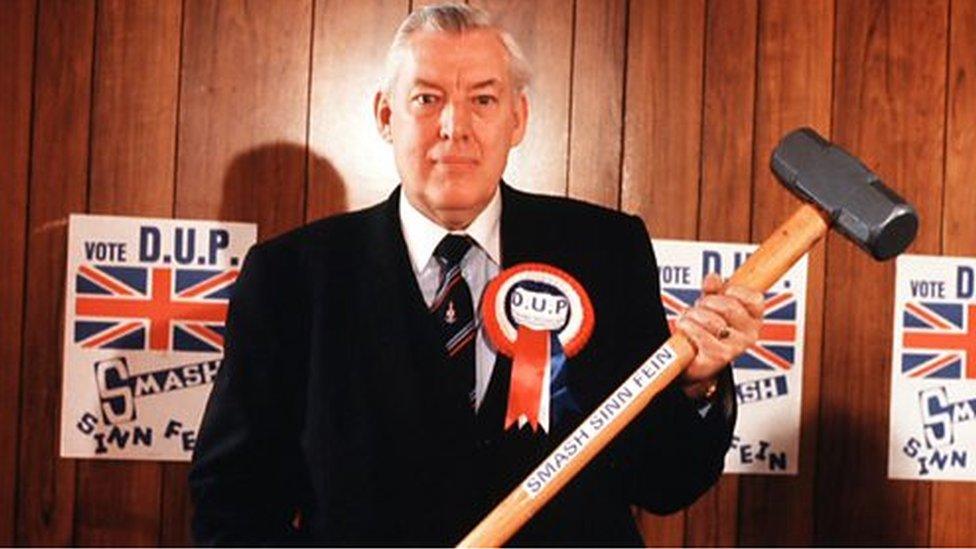Dublin state papers: IRA 'dark mutterings on Gerry Adams'
- Published
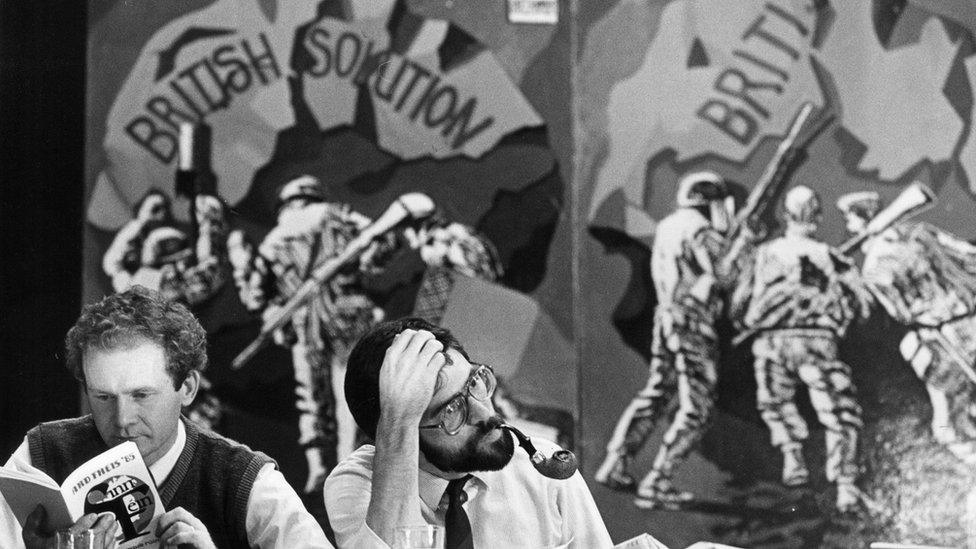
Gerry Adams, pictured on the right here in 1985, was president of Sinn Féin from 1983 until 2018
References to divisions in the IRA and the republican movement are among the political gossip revealed in newly-released Irish state papers.
The declassified papers come from 1988.
An official from the Department of Foreign Affairs reports observations from Paddy McGrory, the solicitor for the families of three IRA members killed by the SAS in Gibraltar.
The note said Mr McGrory had "heard some dark mutterings from an IRA source regarding [Gerry] Adams' leadership".
Mr McGrory "did not place any credence on this as, in his experience, the IRA was traditionally full of differing cliques and it is not unusual for one or other of those cliques to mutter darkly about the various leaderships from time to time".
Mr Adams was president of Sinn Féin from 1983 until 2018. While not disassociating himself from the IRA, he has always denied membership.
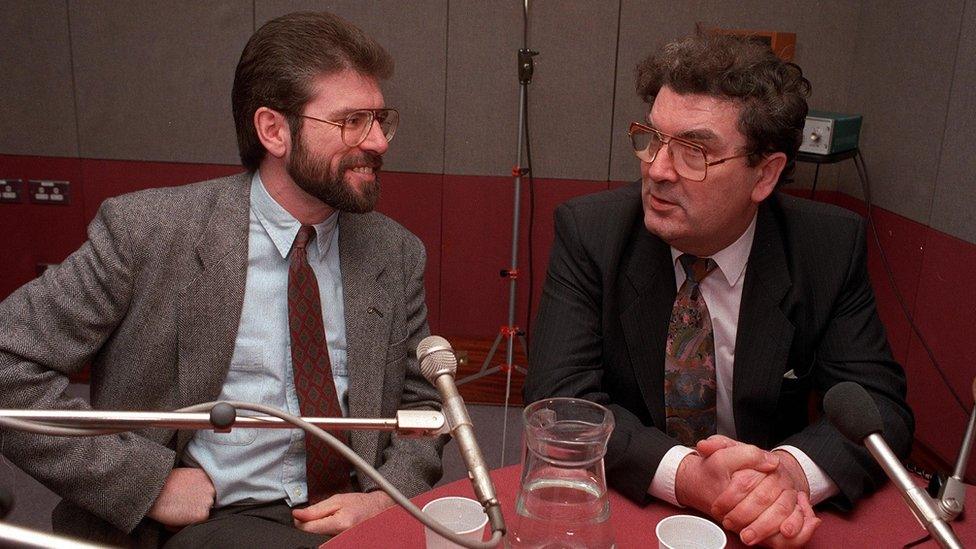
Gerry Adams and John Hume, seen here in 1992, first met in January 1988
In 1988, Mr Adams and SDLP leader John Hume were engaged in the first of the Hume-Adams talks.
According to the declassified note, Mr McGrory said he thought Mr Adams remained secure in the leadership and, while it might appear he had differences with Martin McGuinness, it was important to note they "were close personal friends".
"In his view, Adams is very committed to the republican movement and, to McGrory's mind, would be the last person to be involved in initiating any type of friction or break-up within the movement," said the note.
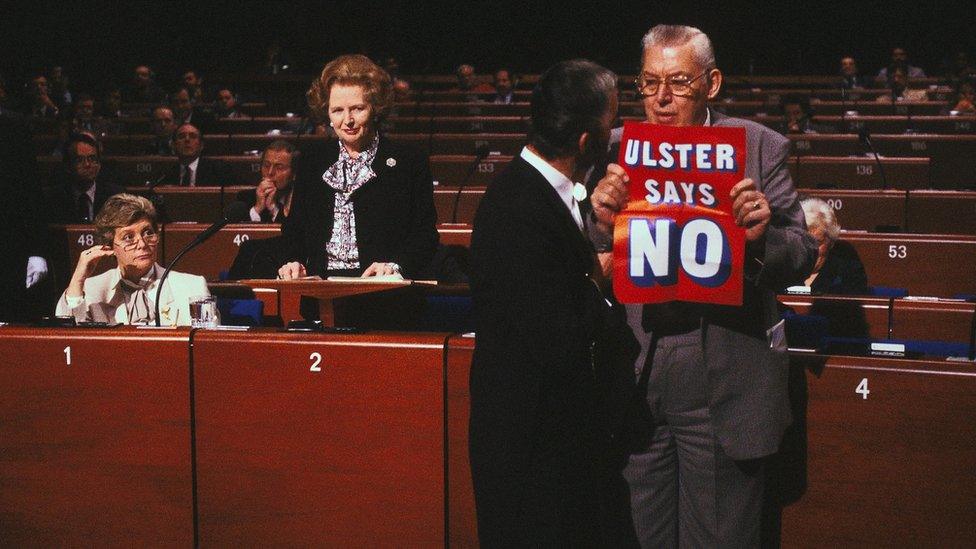
Ian Paisley protesting at the European Parliament as Margaret Thatcher was about to give a speech in December 1986
It was hardly a surprise that the Northern Ireland Office Minister for State Nick Scott was, according to a London Irish embassy note sent back to Dublin, "in despair" about the unionist leadership in 1986.
They opposed the Anglo-Irish Agreement that gave Dublin a say in Northern Ireland's internal affairs.
Paisley 'intellectual bankrupt'?
1988 saw the first Papal visit to the European Parliament in Strasbourg, but it did not go quite as planned.
Moments after Pope John Paul II started speaking, Northern Ireland's Democratic Unionist Party (DUP) MEP Ian Paisley started heckling, telling the Polish pope he was the "antichrist".
Mr Scott described "Paisley's antics" as reflecting the DUP leader's "intellectual bankruptcy".
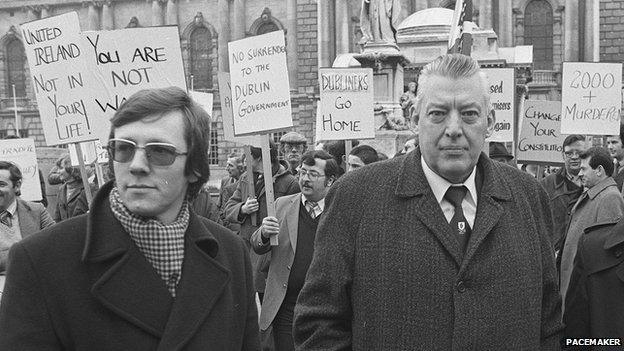
Peter Robinson, pictured left, was one of the founding members of the DUP along with Ian Paisley
There are also insights into perceived divisions and personality issues in various parties.
One note said that, in his opposition to the 1985 accord, DUP leader Ian Paisley would not want to "find himself outflanked by his deputy leader Peter Robinson".
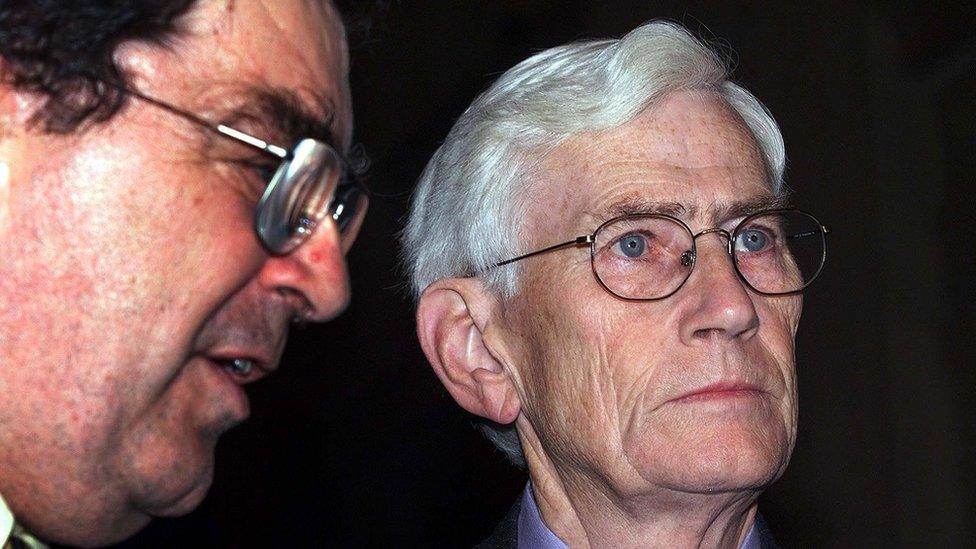
John Hume and Seamus Mallon pictured in 1999
On the SDLP side, there is another note that hints at Seamus Mallon, the party deputy leader, feeling left out when John Hume met Taoiseach (Irish Prime Minister) Garret Fitzgerald, without him or Peter Barry, the Foreign Affairs Minister.
The note says that Mr Mallon "expressed the hope that the big four format would be adhered to in future rather than the big two".
- Published29 December 2018
